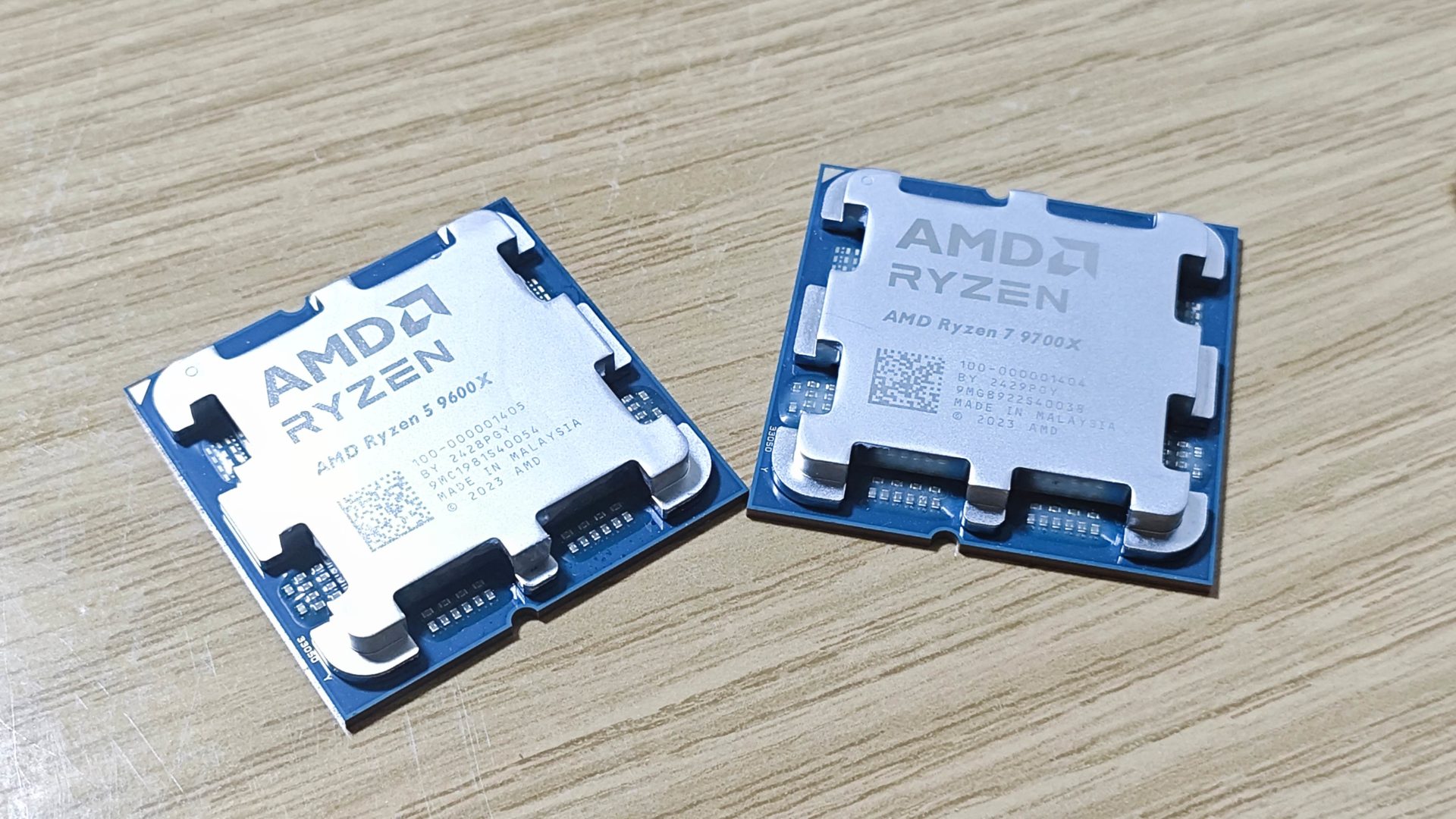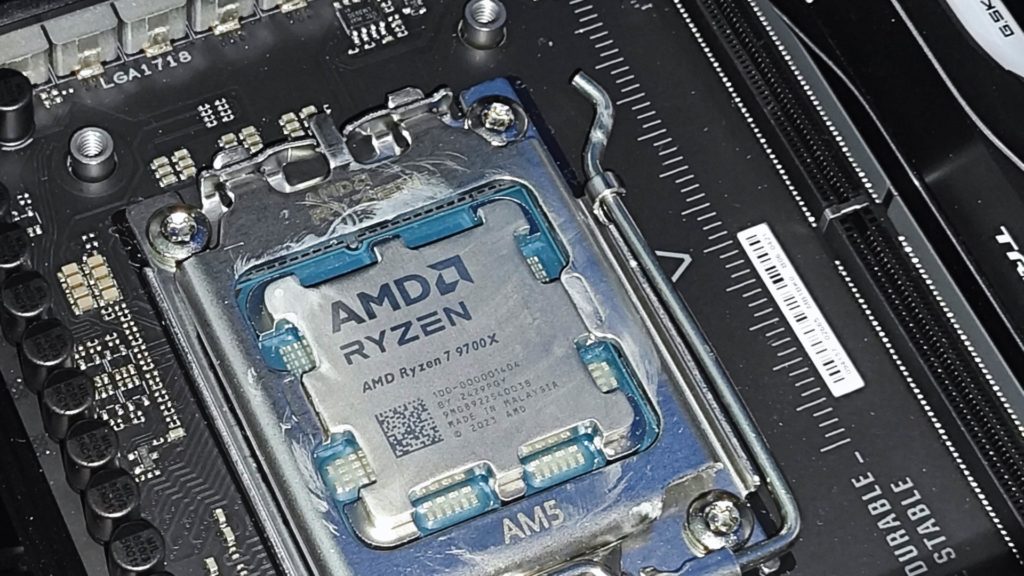
We’ve discussed quite a bit about the new Zen 5 CPU architecture. Zen 5 builds on the success of Zen 4 with further improvements. It is designed to provide improved branch prediction accuracy and latency, generally increasing the instructions per clock (IPC) of the processor. Moreover, with a higher throughput due to a wider pipeline and vectors, as well as a deeper window size across its design for parallelism, Zen 5 is engineered for very competitive performance levels.
Ryzen 7 9700X and Ryzen 5 9600X
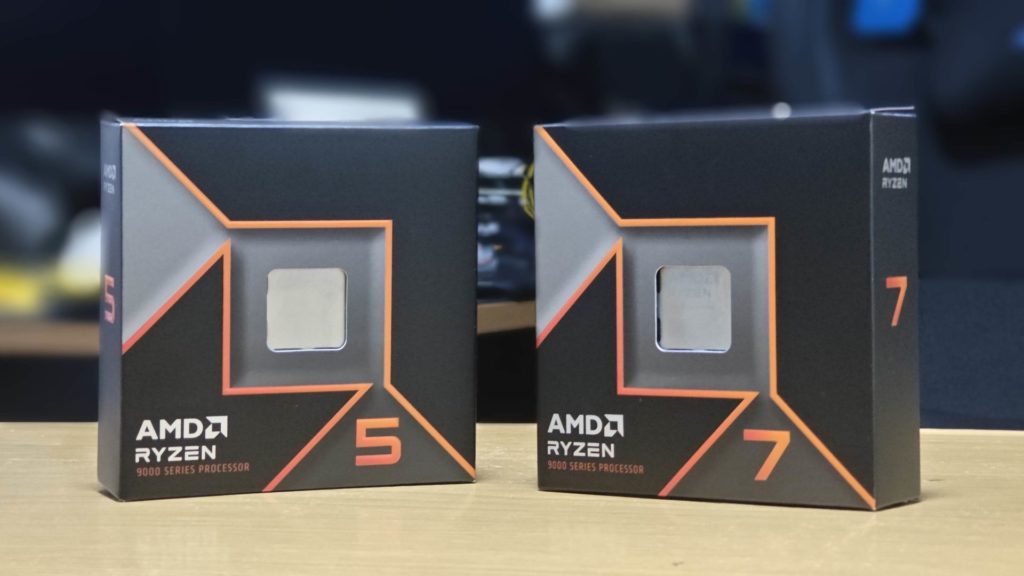
Of course, what we’re most interested in is the performance of these products. In our hands are both the Ryzen 7 9700X and Ryzen 5 9600X. We are going to run these processors with our standard suite of tests and understand how they perform with respect to their predecessors, specifically in terms of raw CPU performance.
| AMD Ryzen 7 9700X | AMD Ryzen 5 9600X | |
|---|---|---|
| Cores/ Threads | 8/16 | 6/12 |
| Max Boost | 5.5GHz | 5.4GHz |
| Base Clock | 3.8GHz | 3.9GHz |
| L2 Cache | 8 x 1MB | 6 x 1MB |
| L3 Cache | 32MB | 32MB |
| TDP | 65W | 65W |
| Price | $359 | $279 |
Setup, Testing Methodologies, and Benchmarks
| Specs | Comparison System | Main System |
|---|---|---|
| CPU | AMD Ryzen 7 7700X | AMD Ryzen 7 9700X/ Ryzen 5 9600X |
| AMD Ryzen 5 7600 | ||
| AMD Ryzen 7 5800X3D | ||
| RAM | G.Skill Trident Z5 Neo RGB 6000MHz | G.Skill Trident Z5 Neo RGB 6400MHz |
| Main Storage | MSI SPATIUM M480 PLAY 2TB | MSI SPATIUM M480 PLAY 2TB |
| GPU | ProArt GeForce RTX™ 4070 Ti SUPER OC Edition | ProArt GeForce RTX™ 4070 Ti SUPER OC Edition |
| Motherboard | ASUS ROG Crosshair X670E GENE | ASUS TUF Gaming X670E-PLUS WIFI |
| ASUS ROG STRIX X670E-E Gaming WIFI | ||
| CPU Cooler | AMD Wraith Prism | AMD Wraith Spire |
| PSU | Cooler Master V1000 | Armageddon 600W Gold |
| OS | Windows 11 64-bit | Windows 11 64-bit |
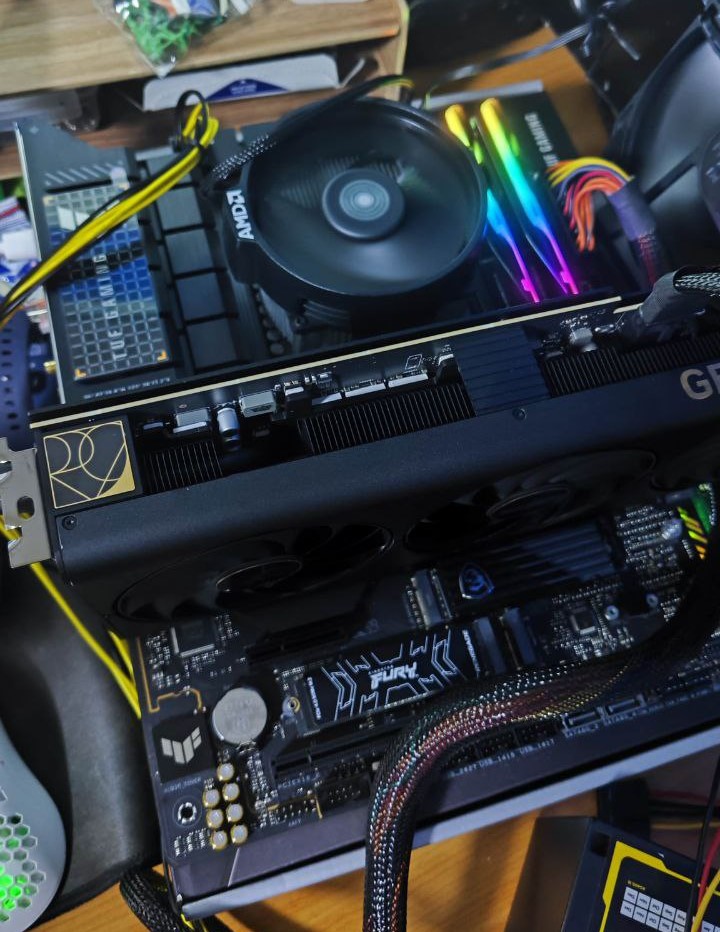
The focus of our tests will purely be on CPU performance. Therefore, we are going to run tests that evaluate the CPU performance of the new Zen 5 processors in stock settings with AMD Expo enabled on our G.Skill kit, and compare it to its predecessors. This will give us an understanding of the performance difference and determine if it’s worth upgrading from Zen 4 to Zen 5.
In a separate article, we will then discuss the gaming performance of these processors.



Based on the CPU tests, we can conclude that there isn’t too much of a performance gap between the Ryzen 7 7700X and the Ryzen 9 9700X. It’s worth noting that the former has a higher base clock than the latter, which could allow for higher sustained performance. The lower TDP of the Ryzen 9 9700X brings improved efficiency in the long run.
The performance difference between a Zen 3 system and a Zen 5 one is significant. Moving from one major socket/platform to another is a major upgrade, as it involves a change from DDR4 to DDR5 memory. This is why we observed great performance improvements between these two processors. The performance gaps widened as we moved from AM4 to AM5.
Conclusion
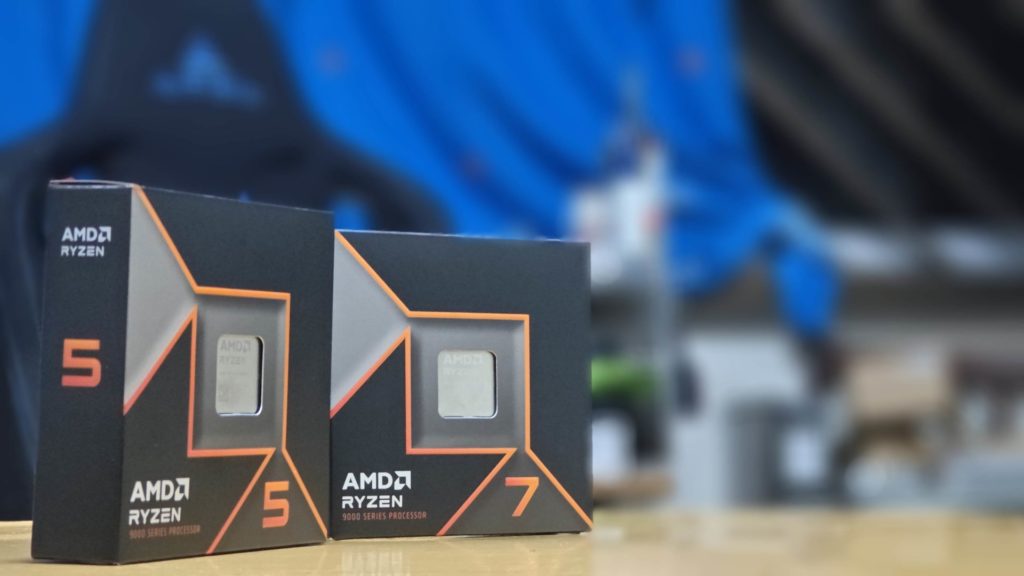
Based purely on the CPU performance results, we can safely say that if you are currently using Zen 4 CPUs, then upgrading to Zen 5 may not make much sense, as performance improvements aren’t significant. This is based on the assumption that you don’t play games and only use your PC for work and number crunching. However, if you are still using Ryzen 5000 series processors, it could be sensible to upgrade. You will notice the difference in system responsiveness and lower electricity bills.
To be honest, we expected more from Zen 5 in terms of raw CPU performance. It seems like AMD has optimized the design of their CPUs for efficiency, especially for the Ryzen 7 and Ryzen 5 SKUs, and there weren’t the huge performance gains we yearned for.
If you are a gamer, look out for our gaming review of the Ryzen 7 9700X and Ryzen 5 9600X, where we compare different generations of processors with various games.


